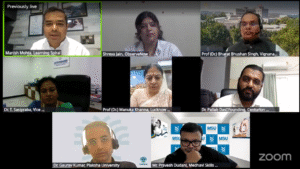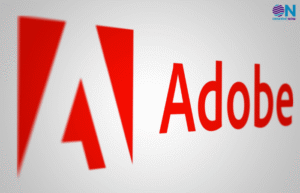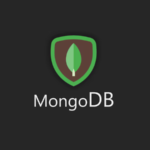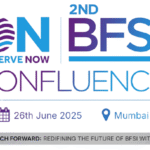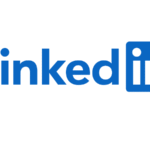AICTE Chairman Prof. T. G. Sitharam Shares Vision for Transforming Technical Education in India; In Conversation with ObserveNow

The All India Council for Technical Education (AICTE) is the apex body responsible for regulating and promoting technical education in India. Its primary role involves setting standards, accrediting institutions, and ensuring quality education across all technical institutions in the country. AICTE is pivotal in fostering innovation and entrepreneurship among students by encouraging industry-academia collaborations, providing startup incubation support, and implementing various skill development initiatives.
To address these objectives, AICTE continually updates its curriculum to align with global standards, promotes research and development activities, and implements robust monitoring mechanisms to maintain the quality and relevance of technical education in India. In this regard Shivani Babbar, ObserveNow interacted with Prof. Sitharam T.G, Chairman, All India Council for Technical Education (AICTE) to further discuss on the matter.
Here are a few edited excerpts from the interview:
Can you please provide an overview of your vision for AICTE and its role in shaping technical education in India?
Answer: As AICTE Chairman, I envision a dynamic and transformative role for AICTE in shaping the landscape of technical education in India. My vision includes:
- Enhancing the quality of technical education across the country. This involves not only maintaining high standards in existing institutions but also fostering a culture of continuous improvement through accreditation, faculty development programs, and regular monitoring mechanisms.
- Promoting a culture of innovation, startups and entrepreneurship within technical institutions. This includes encouraging research and development activities, fostering collaboration between academia and industry, and providing support for entrepreneurial ventures among students and faculty.
- Establishing Industry-Academia Collaboration to ensure that technical education remains relevant and responsive to the needs of the industry. This involves facilitating internships, industry visits, guest lectures, and joint research projects to bridge the gap between theory and practice.
- Promotion of Emerging Technologies: With rapid advancements in technology shaping the future of various industries, AICTE advocates for the promotion of emerging technologies such as artificial intelligence, machine learning, blockchain, and internet of things in technical education curriculum. This ensures that students are equipped with the latest skills and knowledge required to thrive in the digital age.
- AICTE is committed to promote inclusivity and diversity in technical education, ensuring equal opportunities for all students regardless of their background or socio-economic status. This involves implementing policies and initiatives to encourage greater participation of women, rural students, and marginalized communities in technical fields.
- My vision also includes strengthening international collaborations and partnerships, facilitating student exchange programs, joint research initiatives, and academic collaborations with reputed institutions abroad to promote cross-cultural learning and knowledge sharing.
What initiatives is AICTE currently undertaking to promote innovation and entrepreneurship among students?
Answer: AICTE is taking numerous initiatives to inculcate entrepreneurial skills among students.
- IDE bootcamp for School Innovators, Teachers and Principals: For the first time, AICTE has inaugurated Innovation, Design and Entrepreneurship Bootcamp for school going students, teachers and principals. More than 4000 participants are taking part in this bootcamp at 18 different locations of 14 states. We have targeted both participants from both PM SHRI schools and other schools. 232 participants from Jammu & Kashmir and 152 participants from Assam have taken part in this event. The main aim of this initiative is to nurture innovative skills, develop the design thinking approach and explore the business model in schools.
- Phase 2 of IDE bootcamp for Higher Education Institutions: In the month of January 2024, we had also inaugurated the phase II of IDE bootcamp for higher education. During the five-day bootcamp, the participants were trained in product design, ergonomics design thinking and pitching skills to thrive in today’s dynamic business landscape. These IDE Bootcamp focuses on hands-on, experiential learning and gives an opportunity to delve into various product design methodologies, foster design thinking concepts, and gain invaluable experience.
- AICTE NCIIPC Pentathon 2024: AICTE in partnership with National Critical Information Infrastructure Protection Centre (NCIIPC) organised the grand finale of NCIIPC-AICTE Pentathon 2024, – the country’s first national Vulnerability Assessment and Penetration Testing (VAPT). In the 48 hours non stop contest, participants from various technical colleges and universities across India engaged in real-world cybersecurity challenges, simulating the complexities of protecting critical information infrastructure entities.
- AICTE Training and Learning (ATAL) Academy & Indovation Centre: Recently we have inaugurated one of our ATAL Academy and Indovation Centre in Jaipur, Rajasthan. 11 such centres are in pipeline for inauguration. With state-of-the-art facilities, cutting-edge technologies, and a dynamic curriculum, the AICTE Training and Learning Bureau Academy aims to empower educators, administrators, and stakeholders with the tools, knowledge, and expertise needed to navigate the complexities of the 21st-century learning environment. The inception of the Indovation Centre underscores our commitment to fostering a culture of innovation and entrepreneurship among students and faculty alike. This center will serve as a hub for ideation, collaboration, and experimentation, where ideas will be transformed into tangible solutions that address real-world challenges and drive socio-economic progress.
- MoE-AICTE Investor Network: The MoE – AICTE Investor Network is a ground-breaking initiative jointly established by AICTE and the Ministry of Education’s Innovation Cell (MIC) with a vision to foster innovation and entrepreneurship in the education sector. The network aims to provide crucial financial support, mentoring, and strategic guidance to early-stage student or faculty-led startups.
How do you see the role of emerging technologies such as artificial intelligence and blockchain in shaping the future of education?
Answer: The future of Indian education in the context of AI is poised for significant transformation across various dimensions. Artificial intelligence is shaping the future of humanity across nearly every industry. It is already the main driver of emerging technologies like big data, robotics and IoT — not to mention generative AI, with tools like ChatGPT and AI art generators garnering mainstream attention — and it will continue to act as a technological innovator for the foreseeable future. Considerably the demand for technical expertise in these areas is rapidly increasing. The challenge, however, lies in ensuring that the workforce of tomorrow is adequately trained to meet the demands of these emerging fields. This is where the role of Technical Education comes into play.
The National Education Policy 2020 recognizes the need to strengthen Technical Education in emerging fields such as AI, IoT, Cybersecurity, Robotics, etc. It aims to achieve this by developing a multidisciplinary approach to education that encourages the integration of various fields of study. By embracing AI and remote learning, NEP 2020 aims to equip students with 21st-century skills, fostering innovation, critical thinking, and problem-solving abilities essential for their academic and professional success in a rapidly evolving world.
However, a lot of misconception has spread with the emergence of AI but I would like to highlight that AI is not about recreating the human brain. It is about building a system that acts like a human. All in all, AI means analytics, problem solving and autonomous automation based on data, knowledge and experience.
Indeed, AI will cause our workforce to evolve and human jobs will surely be replaced by AI. But the real challenge is for humans to find their passion with new responsibilities that require their uniquely human abilities. The generative Artificial Intelligence will take away many jobs but it will also create new job roles. The statistics say that the market size of AI is expected to be 126 Billion USD by 2030 and with respect to that global job opportunities in AI are expected to be 97 Million jobs by 2025. This clearly indicates that irrespective of AI the job opportunities for humans will definitely exist.
All we have to do is create a workforce that is technically sound, equipped with advanced skill sets to be considered as a future ready workforce. There is a need for continuous learning, upskilling, and reskilling to sustain in the rapidly changing world. It is the need of the hour to integrate Artificial Intelligence-based curriculum into the Indian educational system to avoid potential misuse of AI. Also, it is important to ensure that AI doesn’t become so proficient at doing the job it was designed to do that it crosses over ethical or legal boundaries.
Therefore, it is optimum to integrate AI with the Indian education system to get its maximum and productive benefits for students, teachers and society. I think the use of AI can be an important element for developing India by 2047.
- Integration of AI in curriculum at all levels, from primary to higher education is utmost important. Instead of creating fear of AI and other emerging technologies, we must prepare our youths to adapt and evolve with it.
- AI-powered adaptive learning systems will become more prevalent, allowing educators to tailor teaching methods and content to individual student needs.
- AI technologies can be used to enhance the effectiveness of online education platforms by providing personalized recommendations, feedback, and assessments to students.
- Educators can have training and professional development opportunities from time to time to effectively integrate AI tools and technologies into their teaching practices.
- With AI-driven platforms, students can receive customized lessons, ensuring that learning is aligned with their pace and style. The digital-age student is tech-savvy and often seeks interactive and engaging learning experiences.
- AI offers gamification, virtual reality (VR), and immersive learning experiences. These tools not only make learning fun but also enhance retention and understanding, making education a truly interactive experience.
At AICTE, we are taking numerous steps w.r.t to AI.
- To skill and upskill our faculties, we partnered with the Jio Institute for a Faculty Development Programme on Artificial Intelligence (AI) and Data Science (DS).
- We started minor degree courses in emerging technologies like AI, IoT, blockchain etc.
- Moreover, we joined hands with big international companies like Meta, Cisco, Salesforce, IBM, Adobe, Amazon etc to skill our youth with the emerging technologies and provide them a platform of job and internship opportunities.
- Recently we joined hands with Apna.co to build ‘AICTE Career Portal’, which will tailor for aspiring job seekers and create AI-based resume, real-time notifications for new opportunities. The portal will also introduce AI-aided interview preparation for job seekers.
- AICTE launched Digital Skilling Initiative to upskill 1 crore students and faculty.
- Also, our artificial intelligence and machine learning (AI-ML) Indian language translation tool – Anuvadini is outstanding. It is an in-house language translation tool that is being used to translate books, texts, audio and even video in 14 different regional languages. As a deep learning tool based on disruptive technology, it provides real-time translation of even the lengthiest books along with formatting – an exact replica of the source but in a different language.
So, one can say that the integration of “AI in Education” is not just a technological shift, it’s a revolutionary change that offers a wide range of benefits. Overall, the future of Indian education in the context of AI presents exciting opportunities for innovation, personalized learning, and improved educational outcomes. However, it also poses challenges related to equity, ethics, and workforce readiness that need to be addressed proactively by stakeholders in the education ecosystem.
What challenges as aicte chairman do you foresee in ensuring quality education across all technical institutions in india, and how does aicte plan to address them?
Answer: As the AICTE Chairman, I am proud to affirm that our institutions are exemplary, equipped with robust infrastructure and a highly skilled and employable youth population. Our continuous efforts are dedicated to ensuring quality education. Some of our key initiatives include:
- Focus on Quality of Teaching:
○ We emphasize enhancing the quality of teaching through regular faculty development programs and advanced training sessions.
○ AICTE invests in faculty development programs and promotes industry-academia collaboration to attract and retain high-quality educators. 2. Teachers Training:
○ Our teachers undergo continuous professional development to stay updated with the latest teaching methodologies and industry trends.
- Atal Academy:
○ We have established the Atal Academy to provide quality technical education and foster innovation and entrepreneurship among students.
- Skill Integrated Programs:
○ Our curriculum integrates essential skills training to ensure that students are well-prepared for the workforce.
- Mandatory Internships:
○ We have made internships mandatory to provide students with practical experience and exposure to real-world industry environments.
- Placement Portal:
○ Our Placement portal connects students with potential employers, facilitating job placements and career opportunities.
- Career Portal:
○ The career portal provides guidance and resources for students to plan and advance their careers effectively.
- Future Skill Programs with Skill Council:
○ We are in collaboration with the Skill Council to offer future skill programs, equipping students with the skills needed for emerging industries.
- Special Skills Training:
○ We focus on specialized skills in areas such as energy, AVGC (Animation, Visual Effects, Gaming, and Comics), supercomputing, and CDAC (Centre for
Development of Advanced Computing).
Through these initiatives, we remain committed to delivering high-quality education and ensuring that our students are well-equipped for the future.
AICTE has been emphasizing the importance of research and development in technical education. Can you discuss some of the strategies in place to encourage research culture among students and faculty?
Answer: At AICTE we promote research and development, and innovation through various programmes and schemes. I believe that investing in research and innovation is investing in a country’s future. Research is a very important subject to create new solutions to maintain and improve our way of life. R&D and innovation are interlinked to each other and their parallel collaboration helps in overall development. Innovation fuels economic growth, and R&D fuels innovation, allowing researchers to develop new knowledge, techniques, and technologies. In this era of innovation and entrepreneurship, the biggest companies, organisations and institutions invest millions in research and development (R&D) to allow new ideas to have a chance to succeed. There are numerous challenges lying ahead and solutions to these challenges is rigorous research and finding solutions.
Recently, we have launched AICTE AURA (Augmenting Utilization of Research Assets 2024 Scheme) to promote the utilization of I-STEM (India Science Technology Engineering facilities Map) by providing the financial aid to teachers and students in AICTE approved colleges for utilizing I-STEM facilities and boosting research.
The aim of AURA scheme is to augment existing research by utilization of public funded hardware and software R&D facilities mapped by I-STEM, and thereby developing a culture of research in technical education Institutions. Through AICTE AURA Scheme, the use of I-STEM in research will be promoted by providing financial assistance to full time/regular faculty of AICTE approved institutions and students of PG scholarships, ADF fellowship and QIP scheme. The scheme is also beneficial for PG students of AICTE approved institutions who have not availed PG scholarships.
Under the scheme, an amount of up to Rs. 2 lakh will be given to the researcher for the use of equipment and facilities registered on the I-STEM portal. The project will last for a maximum of two years. There is no age bar to avail the benefit of the scheme. However, an eligible faculty member or a researcher is eligible to use the scheme only twice in his entire career.
With the rapid advancement in technology, how is AICTE adapting the curriculum to ensure graduates are equipped with the skills needed for the future workforce?
Answer: Quality education along with upgraded skills will lead India’s workforce to compete and stand globally. Indeed, education plays a crucial role in building a strong foundation of knowledge, fostering critical thinking, and developing social and emotional skills. However, there is an intense need to adapt education systems to ensure they are aligned with the changing demands of the future job market. Despite creating fear of new technologies, AICTE embraces the emerging technologies in education. Technologies such as virtual reality (VR), augmented reality (AR), and artificial intelligence can revolutionize education by creating immersive and personalized learning experiences for youths to compete globally.
Not just imparting knowledge and education, we take numerous efforts to transform, empower and skill our young generation to make them confident, self-reliant and productive. The integration of skills in youth is a crucial aspect of their personal and professional development.
At AICTE, we have taken various initiatives to establish industry-academia collaborations to address the skills gap and foster a future-ready workforce. Signing of MoUs with big brands like Meta, Cisco, Salesforce, Arm India, Amazon, Bajaj Finserv etc is an integral part of AICTE to ensure that the private sector contributes by actively participating in curriculum development, offering apprenticeships and internships, and providing funding for skilling initiatives. Moreover, AICTE is rigorously emphasizing upskilling and reskilling programs for the existing workforce to ensure their employability in the face of technological disruptions. Recently AICTE started diploma, graduate and postgraduate courses for working professionals for their academic upgradation.
In order to equip the faculty members with advanced knowledge and skills, AICTE introduced the Master Training Program in High Performance Computing (HPC) in collaboration with the Centre for Development of Advanced Computing (C-DAC). The program provided HPC training to 100 faculties at two different centers of C-DAC in Pune and Bengaluru and the trained faculties got eligible to further educate and train other faculties across the country.
With reforms in curriculum, industry-academia collaboration, digital integration, boost to entrepreneurship, soft skill enhancement and a focus on lifelong learning, AICTE is trying to bridge the gap between education and skilling and empower students with the skills and knowledge needed to thrive in the digital age.
What advice would you give to aspiring leaders and educators in the field of technical education in India?
Answer: I advise aspiring leaders to follow the mantra of Continuous learning, Upskilling and Reskilling to sustain in the rapidly changing world.




